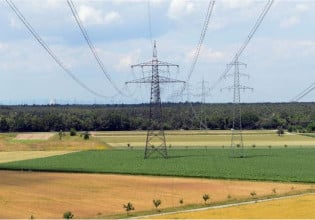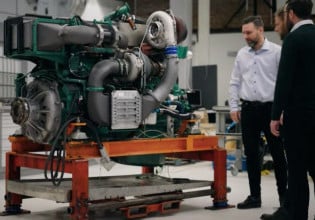Carbon-Conscious Companies
This article features mix of companies that are working in different ways to reduce their emissions and contribute to the global climate-conscious movement.
The trend to become “carbon-neutral” is taking a higher priority among public and private sector interests alike, and the power electronics industry is no exception.
While particularly popular among large-scale utility companies and automotive providers, the push to cut down on energy waste trickles down to all types of industries.
To give you an idea of the scope of the trend, here’s a mix of companies that are working in different ways to reduce their emissions and contribute to the global climate-conscious movement.
Infineon Technologies: Carbon-Neutral by 2030
At its annual meeting on February 20, German semiconductor manufacturer Infineon Technologies AG officially unveiled a new plan to become carbon-neutral by 2030, in order to help meet the CO2 reduction objectives of the Paris Climate Agreement.
The company plans to do so by avoiding direct emissions and reducing energy for its plants and processes. For areas in which emissions are unavoidable, Infineon will compensate by “purchasing green electricity with guarantees of origin,” according to the company’s press release.
After investing around €50 million in existing plans to cut emissions, Infineon says its frontend production sites use just over 50% less electricity per square centimeter of processed wafer surface than the average for all manufacturers.
ABB: Reducing Greenhouse Gas Emissions in Company Processes
Since 2013, power giant ABB has reduced its use of fossil-fuel oil and diesel by more than 40%, simultaneously doubling its use of biofuels. These efforts are part of ABB’s larger initiative to address the five “Grand Challenges” of sustainable development: Waste, equal opportunity, clean energy, innovation, and carbon emissions.
ABB has spent the past several years working towards its goal towards a 40% reduction in greenhouse gas emissions by 2020. In particular, ABB says it aims to reduce greenhouse gas and sulfur hexafluoride emissions sourced from fuel used in its operations, production process, and gas handling on site.
With 57% of the company's revenue coming from its eco-efficiency portfolio, ABB is continuing to prioritize its renewable energy products and services while also reducing greenhouse gas emissions within its core processes.
Eaton Corporation: Clean Power and Global Access
Dublin-based power management firm Eaton Corporation provides renewable power generation products and energy-efficient components for use in electric vehicle development, agriculture production, and wind and solar power. The multinational company has a full slate of sustainability initiatives ranging from climate action, water use, waste reduction, and ethics and compliance.
Eaton also plans to contribute to the movement to bring universal access to electricity to underserved communities around the world. It is working with the Power Africa initiative to add over 30,000 megawatts of cleaner power by 2030. It also supports the United Nations Agenda for Sustainable Development to ensure universal access to electricity and modern energy services by 2030.
Würth Elektronik: Recording and Reducing Energy Consumption
Germany-based Würth Elektronik, which develops electronic and electromechanical components, is contributing to sustainability and environmental protection through its Integrated Management System, which supplements workflows and processes within the company to monitor and analyze energy consumption in individual systems.
The management system records the consumption of electricity, water, gas, oil, heating, and cooling in order to maximize renewable energy generation where opportunities arise.
Würth also regularly assesses its raw materials suppliers to ensure they have a certified environmental management system in place.
Additionally, Würth recycles 97% of all waste produced in its circuit board plants.
These are just a few companies that are implementing carbon-conscious practices across their operations and services. As the trend broadens, corporate strategies for curbing emissions will inevitably become more universal.
These are just a few companies that are implementing carbon-conscious practices across their operations and services. As the trend broadens, corporate strategies for curbing emissions will inevitably become more universal.






